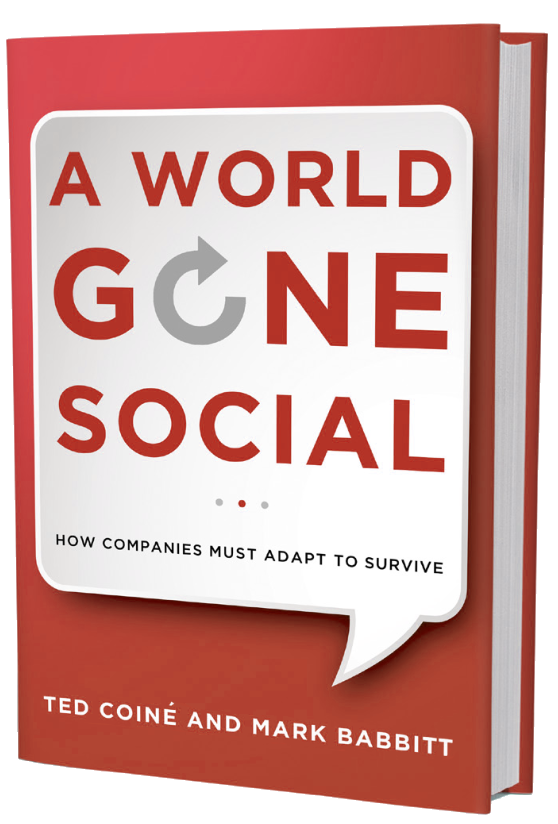Next Book: A WORLD GONE SOCIAL
Sunday, November 16, 2014
A World Gone Social: How Companies Must Adapt to Survive by Ted Coine, Mark Babbitt. AMACOM. 256 Pages
ABOUT THE BOOK
The business world has entered a new era—one in which social media has fundamentally changed the way companies innovate, market, scale, build teams, and serve customers. Welcome to the Social Age.
Containing stories, analysis of real-world scenarios, and indispensable guidance, A World Gone Social provides the tools you need to build a socially enabled team that puts the customer experience first. You’ll discover what it means to create an "OPEN" network of partners, collaborators—even competitors. And you’ll learn why nimble and collaborative organizations will ultimately outlive their Industrial Age competition.
In this new business climate, companies unwilling to change are destined for extinction. A World Gone Social enables you to avoid this fate—and lead your organization confidently into the Social Age.
You can read a sample chapter (pdf link) here.
The book's website with more info is here. Read more...
ABOUT THE BOOK
The business world has entered a new era—one in which social media has fundamentally changed the way companies innovate, market, scale, build teams, and serve customers. Welcome to the Social Age.
Containing stories, analysis of real-world scenarios, and indispensable guidance, A World Gone Social provides the tools you need to build a socially enabled team that puts the customer experience first. You’ll discover what it means to create an "OPEN" network of partners, collaborators—even competitors. And you’ll learn why nimble and collaborative organizations will ultimately outlive their Industrial Age competition.
In this new business climate, companies unwilling to change are destined for extinction. A World Gone Social enables you to avoid this fate—and lead your organization confidently into the Social Age.
You can read a sample chapter (pdf link) here.
The book's website with more info is here. Read more...

